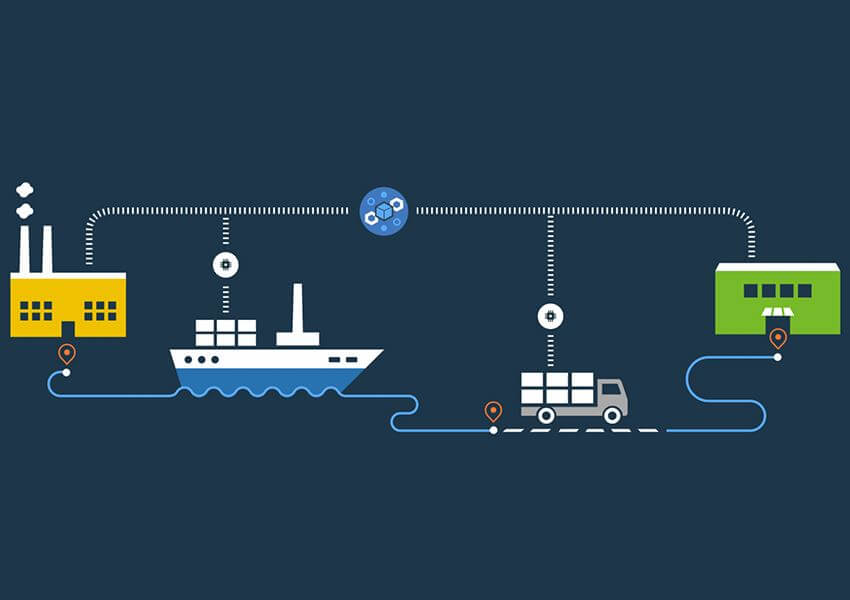How Blockchain Technology Can Bring About a Supply Chain Transformation

Supply chains today have become complicated, even cumbersome. With the numerous go-betweens, myriad issues like the amount of time taken to make payments to manufacturers/suppliers or customers/vendors, to the extra cost and delay incurred due to contracts being handled by lawyers and bankers; be it consumer goods, industrial equipment, digital offerings, there are plenty headaches that supply chain management systems now suffer from. Blockchain technology, when leveraged appropriately, has the potential to be the answer to most of these issues.
The matter of the fact, is that supplier and clients have to deal with multiple third-party entities, instead of being in direct contact with each other. As a result of this, what could’ve been simple transactions, turn into unnecessarily lengthy procedures, that consume both resources and time.
Applications of blockchain are a-plenty and can range anywhere between supply contracts that are self-executable, to even automated cold-chain management. Here’s taking a look at some of the ways that blockchain technology can transform supply chain management:
- Product Traceability and Quality Control: Blockchain can help increase the traceability of product status at every stage of production. Since the records are permanent/inalterable, they can also help track the product, to the source. For e.g. Walmart, the global retailer, employs blockchain to track its sales of meat in China. Issues of processing, storage, source, product recall are all managed via blockchain system.
- Payment Automation: Blockchain facilitates the transfer of funds almost anywhere in the world. This eliminates the need for traditional banking methods by making direct transfer between payee and payer possible. With the transfer being secure and rapid, it also amounts to considerable cost savings.
- Smart Contracts for Logistics: RFID (Radio-Frequency Identification) tags can be used for cartons/pallets that can store delivery related information. Logistics partners can look for the said information and bid for delivery contracts, wherein optimal price and service wins the bid. The smart contract can further track status, as well as the final delivery performance. For e.g. IBM and Maersk have already begun a blockchain pilot program, wherein via distributed ledger technology all the details related to a shipment can be stored in a single electronic place.
- Improved Visibility of Outsourced Contract Manufacturing: In the case of outsourced contract manufacturing, blockchain provides all the respective parties with access to the same data, which can help in the reduction of potential data-transfer errors. This means that less time needs to be spent on data validation and can be rather utilized on the delivery of goods/services, this, in turn, will help in improving quality and cost reduction.
The applications of blockchain are myriad and it contains within it the power to transform, supply-chains, industries and business-ecosystems. What do you think about the impact that blockchain technology can have on supply chain management systems? Tell us more in the comments section below.
One thought on “How Blockchain Technology Can Bring About a Supply Chain Transformation”
Leave a Reply
You must be logged in to post a comment.

This is a good overview that demonstrates the need of block chain in supply chain process but many entrepreneur are facing the complexities in implementing the same in their business due to lack of knowledge about the same.